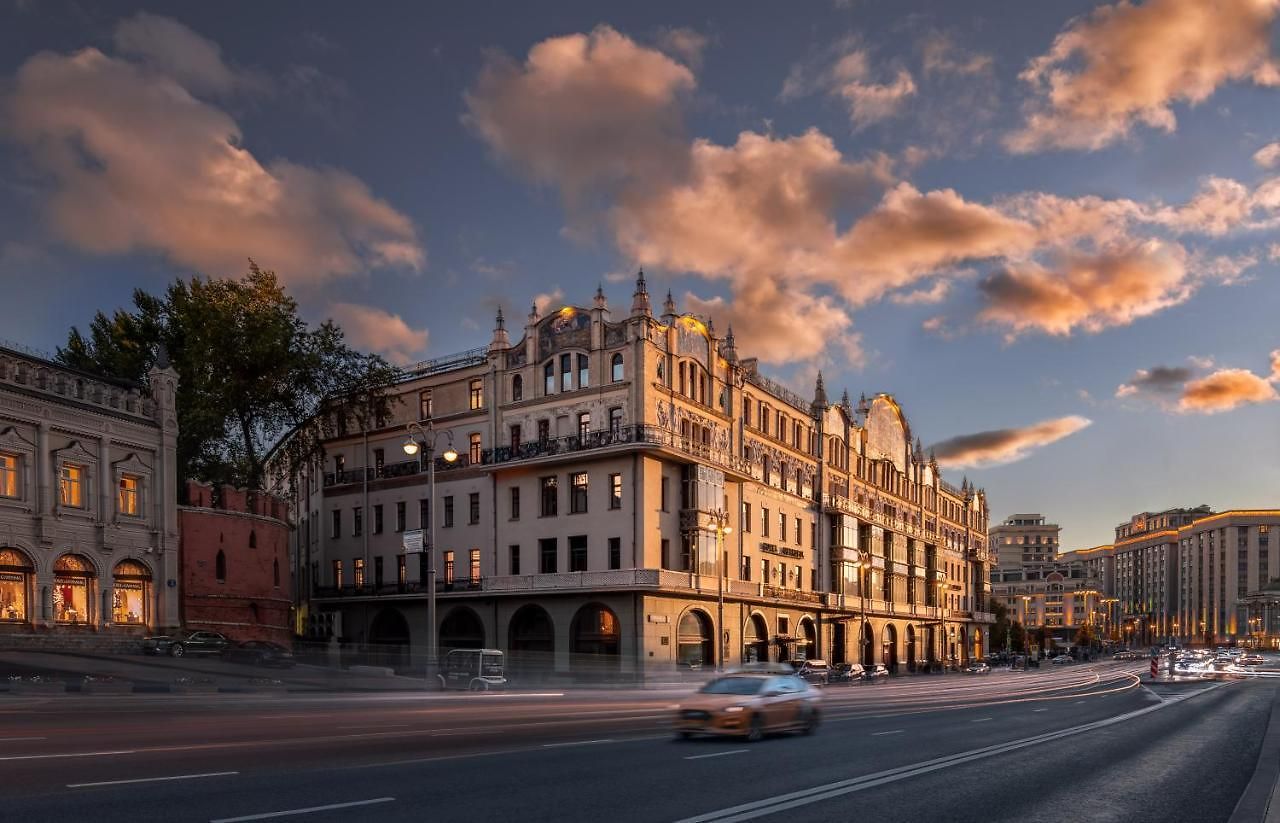“If a man does not master his circumstances then he is bound to be mastered by them”
A Gentleman in Moscow is set in 1922 Russia (following the Bolshevik Revolution) and centers around Alexander Rostov, a Count who finds himself sentenced to live indefinitely in the Grand Metropol Hotel under house arrest. He’s the epitome of a gentleman: one of witty charm, handlebar moustaches, and fantastic taste in wine. And while it might sound like a rather dry premise, the novel itself is anything but. At its very heart, it’s really a story about making lemonade.

Without giving too much away, Count Rostov makes the wise decision to turn inwards, toward the intricate system of cogs and gears that is the Metropol, as well as the people who reside in it: a perpetually restless friend, a short-tempered head chef, a dexterous maître d’hôtel, a willowy actress, an incredibly punchable manager, and one unexpected human life bomb. His interactions with those around him fill the space he has been confined to, with each person attempting to master their own circumstances.
It’s important to mention that all of this plays against the backdrop of the increasingly hostile relationship between the U.S. and the Soviet Union. The ideological upheaval of Moscow not only contextualizes the swift decline of aristocracy that sets up the story, but also drives it forward in subtle ways that reveal the power of those behind the curtain. Even though the Count is essentially cut off from the outside world, the cold bureaucracy of the Bolsheviks that has transformed Russia into an ascending global superpower still manages to penetrate the walls of the Metropol and disturb his life. However, despite the fact that he’s a victim of his own government, Alexander Rostov’s love for his country admirably never falters. It’s the type of patriotism that I’ve noticed has plummeted among young people here in the U.S.—a personal pride in our country’s foundational ideals that isn’t dependent on any misgivings against our government, but instead freely aspirational in what our country has the potential to be. At the end of the day, what really matters is the triumph of the endless pursuit of our shared virtues over any complacency or dissatisfaction.
I think part of what makes this book good is the fact that Amor Towles is an incredibly eloquent writer. He manages to make turning a page feel like spinning the tape on a film reel. And while the film he plays does fall under the trope of finding the beauty in the mundane, to simply dismiss all of it as a cliché would be a disservice to how multifaceted a story it is. It’s the depiction of a man’s struggle to look beyond the despair of his misfortune and instead make the most of what comes through the revolving door of life. And for the Count, extraordinary things come tumbling through that door—things that bring companionship, love, regret, and pride. It’s an endearing story. From its pages springs a sort of hopefulness that’s hard not to embrace. After all, whether it be lemons or not, what’s more exciting than that which is about to come next?
A few passages that I liked:
Alexander Rostov was neither scientist nor sage; but at the age of sixty-four he was wise enough to know that life does not proceed by leaps and bounds. It unfolds. At any given moment, it is the manifestation of a thousand transitions. Our faculties wax and wane, our experiences accumulate and our opinions evolve if not glacially, then at least gradually. Such that the events of an average day are as likely to transform who we are as a pinch of pepper is to transform a stew.
👏👏
He had said that our lives are steered by uncertainties, many of which are disruptive or even daunting; but that if we persevere and remain generous of heart, we may be granted a moment of supreme lucidity—a moment in which all that has happened to us suddenly comes into focus as a necessary course of events, even as we find ourselves on the threshold of a bold new life that we had been meant to lead all along.
Some timeless advice that the Count gives Sofia
For his part, the Count had opted for the life of the purposefully unrushed. Not only was he disinclined to race toward some appointed hour—disdaining even to wear a watch—he took the greatest satisfaction when assuring a friend that a worldly matter could wait in favor of a leisurely lunch or stroll along the embankment. After all, did not wine improve with age? Was it not the passage of years that gave a piece of furniture its delightful patina? When all was said and done, the endeavors that most modern men saw as urgent (such as appointments with bankers and the catching of trains), probably could have waited, while those they deemed frivolous (such as cups of tea and friendly chats) had deserved their immediate attention.
I’d like to add visits to the DMV to bank appointments and train departures
After all, what can a first impression tell us about someone we’ve met just for a minute in the lobby of a hotel? For that matter, what can a first impression tell us about anyone? Why, no more than a chord can tell us about Beethoven, or a brushstroke about Botticelli. By their very nature, human beings are so capricious, so complex, so delightfully contradictory, that they deserve not only our consideration but our reconsideration—and our unwavering determination to withhold our opinion until we have engaged with them in every possible setting at every possible hour.
Probably my favorite quote from the novel—makes the world feel a little wider